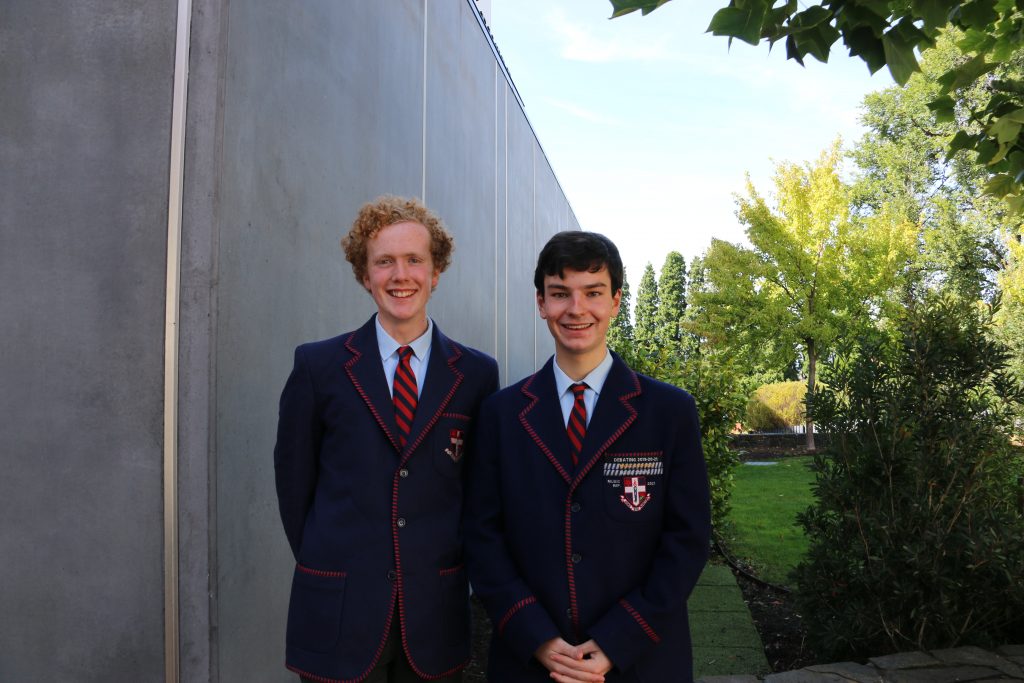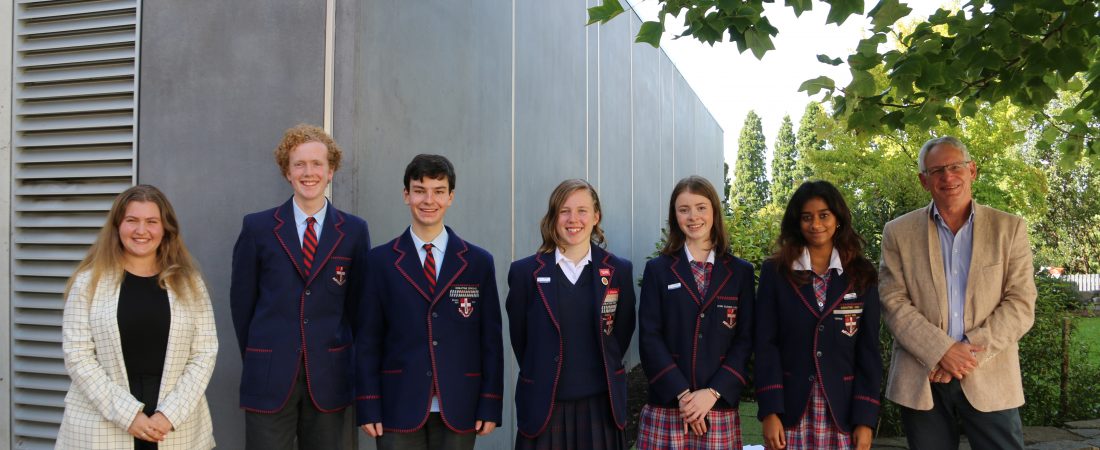The Ray Green Speaking Prize 2022
Posted on April 27, 2022
By Sarah Walker, International Baccalaureate Diploma Coordinator
In his 1924 analysis of public speaking, The Art of Public Speaking, Albert Beveridge offers advice to orators distilling what he believes makes an effective public speaker: ‘Speak only when you have something to say. Speak only what you believe to be true. Prepare thoroughly. Be clear. Stick to your subject. Be fair…’
This timeless wisdom is something to which the senior students who entered this year’s Ray Green Speaking Prize certainly adhered. Judges, Maddie Webster and Andrew Gibson, were glowing in their praise for each of the five speakers who rigorously engaged with this year’s prompt: Changing the Narrative.
Felix Churchill was first to speak with his carefully crafted and powerfully delivered presentation on our need to change the narrative when it comes to the manipulation of the truth and conspiracy theories: ‘All too often the narrative is manipulated to conceal the truth…We are living in a time where we are drowning in information and struggling to keep our heads above the water. Headlines such as ‘Fake News Laws Set to Restrict the Flow of Misinformation’ and ‘Two Arrested for Spreading Fake News’ continue for pages.’ Felix, who was the runner-up, ended by encouraging all present to look beyond the ‘murky depths…to submerge [our] being[s] below the surface, to see past the refraction’ and to find ‘the undercurrent of truth’.
Shriya Anil followed with her compassionate and persuasive take on the need for us to change the narrative about the ways in which we, as a society, treat asylum seekers. By starting with the experience endured by Logan Sawari, Shriya crafted a moving presentation that ended with a plea for us to rise above the false narratives that seek to strike fear in the community: ‘Don’t start with the boat. Don’t focus on their past, where they came from, the decisions made and agonised over. Fulfil our responsibility to protect all asylum seekers and acknowledge their true narratives…’
Brigitte Fountain followed, throwing down the gauntlet and challenging us to acknowledge that there is still much to be done when it comes to the rights of women. Brigitte ended with a rousing entreaty: ‘The narrative that we are projecting to our youth is still one which values women less highly than men. Where I stand today, I have the ability and opportunity to change this narrative, whilst millions of young people around the globe do not. So, rather than adding an extra line to this depressing archive, retire this rhetoric. Be brave, be considerate and be kind. Change our narrative for those who cannot’.
For Gryff Connah, changing the narrative meant challenging the big media corporations that rely on ‘the undivided attention that we allot to what is bad to attain our viewership’ and actively overlooking news which is good. His message was of hope in our shared humanity to draw inspiration from the ‘… images of moral goodness that trigger within us ‘the elevation effect’ which can counter the ‘tsunami of the world’s grievances’. Gryff, who won the event, finished by urging his peers: ‘…this change will not come from the media; it’s simply not in their interests. But we don’t need them – we can change this. Just the other day, I read on a street-light, ‘Control the media and you control the narrative’…Through the social media influence at our disposal, we have the power to publish, air, post that which keeps us informed of the good of the world, so that we may work towards it, invigorated and enduring’.
Finally, Zoe Adams took to the stage, reminding the audience of the gains made for women scientists in STEM but also reminding us that this work is unfinished. Zoe powerfully ended by sharing her hope for the future: ‘I wish for a world in which my future daughter does not to come to me and say, “I want to be a woman in STEM”; that she instead sees herself in the scientists, engineers and doctors she sees on the TV; that I never have to warn her that she will have to work so much harder for half as much reward. Instead, I dream of a world in which my future daughter comes to me and says, “Mummy, I want to be a scientist”. And that is that.’

All speakers are to be commended on their engaging and stimulating presentations which were very positively received by an appreciative audience of their peers and staff. Andrew Gibson shared: ‘It was quite a thrill to hear those young, passionate, thoughtful voices’. Maddie Webster reflected: ‘I am so thankful that I got to listen to [those] thought-provoking speeches. I am so happy that public speaking at our school, and in our community, is still thriving…’
